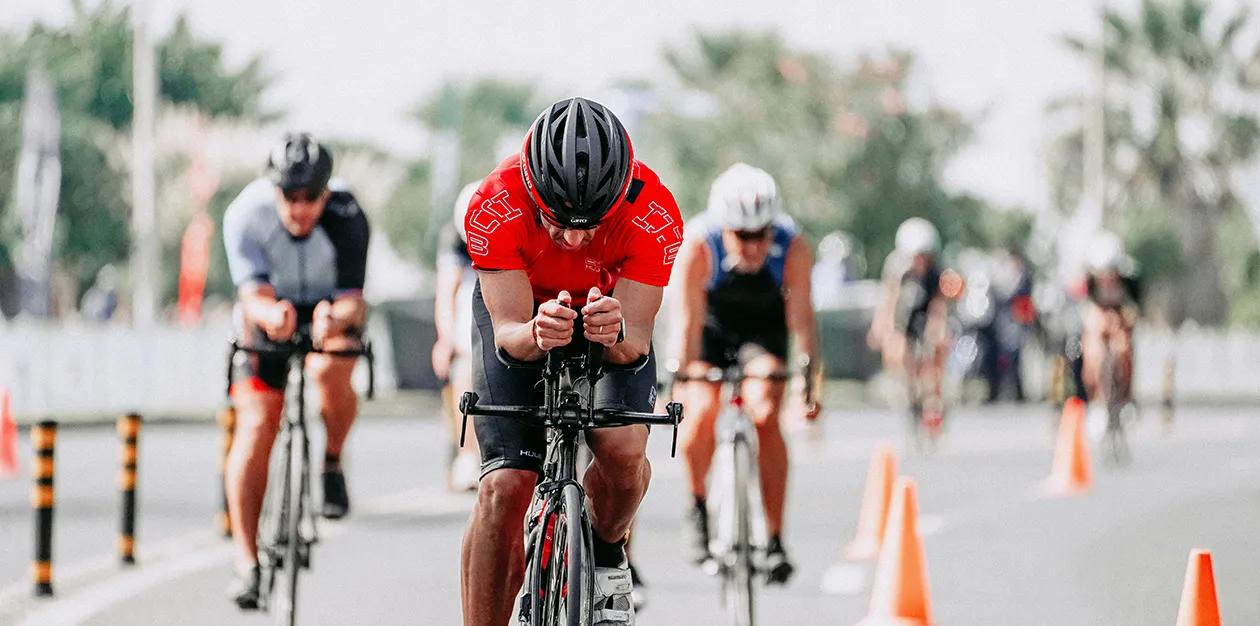As a triathlete, there are a lot of stresses and forces your body has to withstand as you are vigorously competing, and training. With that being said, an injury can happen, which can cause you to slow down or cause you to modify your training to help your body heal. This can be detrimental especially if it happens during your peak in season time.
So what can you do if you end up with an injury while in season?
Here are 4 tips that you can follow to make sure you are able to recover from your injury without compromising performance…
1. Recognizing the injury early. It is paramount to learn how to read your own body. It is important to recognize when to stop an activity vs pushing through “training pain/soreness.” Here are the red flags that would warrant you to stop training and seek professional help.
a. The pain is sharp, stabbing and localized that quickly intensifies with activity
b. Discomfort or pain that persists even after performing a warm up or present even with rest
c. You notice a change in your form, you notice you are limping or favoring one side of your body
d. There is evidence of swelling, redness, or bruising around the injured area
e. There is a sensation of giving way or weakness/instability
If any of these signs are present it is important to seek medical attention sooner rather than later as it allows for a smoother and quicker recovery. It is always easier to recover from an acute injury(<6 weeks) vs a chronic injury (>6 weeks).
2. Modify your training regime to accommodate the injury. This is a great time to seek a physical therapist who is well trained in identifying musculoskeletal injuries. They can help identify any muscular or mechanical imbalances that may be contributing to the injury and help prepare a training routine to help maintain your fitness level without compromising your healing. This would include some sort of cross training to make sure there are no aerobic losses while you recover. They can work closely with your coach to adhere to a plan that is specific to you. Or they can direct you towards the right MD for further evaluation if needed.
Many of our athletes struggle with decision making while injured as they continue to train. They are not sure how to structure their week, how to add volume back into their training, and also how or what to do when they do get a flare up as they are ramping back up. That’s where an experienced physical therapist who works with triathletes regularly can be a huge help. Flare ups as you ramp up are unavoidable, but we can help you identify when the flare up is ‘expected’ and what to do about it.
3. Be mindful of recovery and rest. This also includes being mindful of your mental state. Yes, having a positive mindset is easier said than done. It can be frustrating being sidelined by an injury, especially when you have a big race coming up. But it’s important to remember that you can’t rush the recovery process. Healing an injury takes time, as cell turnover takes time. This can range from 6-12 weeks depending on the injury. Doing physical therapy which includes hands on massage, mobility work and exercise, can help accelerate the healing process and also make sure you build strength as you heal to ensure you will be strong when you ramp back into your activity.
4. Identify persistent fatigue. Oftentimes, especially when athletes are eager to return to their training regimen, they ignore fatigue and this is when they experience a flare up that might set them back again. Thus, it is important to allow your body the necessary time, rest, recovery and nutrition for healing. Do not neglect stretching, foam rolling, or massages which can also help with the recovery process.
In summary, become a master of listening to your body, and learn to balance rest vs activity. The more familiar you are with your own body, the better you can tackle these injuries before they become serious. Learning how to make the right decisions for yourself throughout your training journey is key to success in your longevity in the triathlon world.
P.S. If you’re a runner or triathlete dealing with nagging niggles, don’t wait until they get worse. Please get them checked out so you’re not sidelined from training! If you’re not in pain but don’t know where to start your workout or if you need to get your form checked, please connect with us! Reach out to us by phone/text at 973-310-2678 or Click here to inquire.
Happy training!
Dr. Anakaren Lopez, PT, DPT, OCS, CSCS, PCES
Doctor of Physical Therapy
Orthopedic Certified Specialist
Certified Strength and Conditioning Specialist
Certified in Trigger Point Dry Needling
Postpartum Corrective Exercise Specialist
Dr. Tejal Ramaiya, PT, DPT, CSCS, CMPTP/DN, TPI/CGF-MP
Doctor of Physical Therapy
Certified Strength and Conditioning Specialist
Certified in Trigger Point Dry Needling
Certified Golf Fitness Medical Professional
Owner at Body Moksha Physical Therapy


